Canadian martial law under the tyrannical dictatorship of Stephen Harper
Corruption, Latest news, World news Sunday, March 3rd, 2013
Former leader and dissolver of the Progressive Conservative Party of Canada, Peter MacKay shakes hands with former Canadian Alliance Party leader and dissolver Stephen Harper as UK’s Royal representative Governor General David Johnston looks on after being reappointed as Minister of War during a ceremony at Rideau Hall in Ottawa May 18, 2011.
On December 18, 2000 President-Elect George W Bush meet with Congressional leaders on Capitol Hill and uttered these infamous word: “If this were a dictatorship, it would be a heck of a lot easier, just so long as I’m the dictator. Everyone laughed because Americans know that the United States Constitution was drafted to prevent that. The checks and balances of powers makes it very hard (but not impossible) for a dictatorship to rule the United States. Unfortunately the same can’t be said for Canada.
Is Canada a democracy? Is the United States of America a democracy? Most people, when faced with these questions, would answer “Yes!” to both. After all, both countries hold free elections, are respectful of human rights and uphold many civil liberties that are codified in documents such as the Bill of Rights or the Charter of Rights and Freedoms.
However the correct answer for both questions is “No”. Canada is not a democracy it is a Constitutional Monarchy a.k.a martial law – law administered by the military authority of a government. The highest ranking official in the Canadian government is not elected. That person isn’t even a Canadian (residing in or born in), but rather a foreign monarch. This foreign monarch has ruled Canada under martial law (military authority) since 1882.
Martial law is imposed when a government’s military personnel have the authority to make and enforce civil and criminal laws. Certain civil liberties may be suspended, such as the right to be free from unreasonable searches and seizures, freedom of association, and freedom of movement. And the writ of Habeas Corpus may be suspended (this writ allows persons who are unlawfully imprisoned to gain freedom through a court proceeding). Martial is defined as “of, relating to, or suggestive of war; warlike. Relating to or connected with the armed forces or the profession of arms or military life.
In Canada the monarch’s martial law enforcing personnel are the RCMP – Royal Canadian Mounted Police – a military force for anglo-Saxon (German) Queen Elizabeth II. The official dress uniform of the RCMP is the same official uniform of the British military – the red coat. The name Royal in RCMP clearly tells us that they are recruited, employed and instructed to enforce martial laws made by
When an RCMP constable is sworn in, he or she takes a three part oath. The following is the oath I, Paul W Kincaid, was required to take 30 years ago in order to become an RCMP. You cannot enlist as a RCMP if you do not take that oath.
Oath of Allegiance: “Do you solemnly swear that you will be faithful and bear true allegiance to Her Majesty Queen Elizabeth the Second, Queen of Canada, her heirs and successors according to the law, so help you God?”
Oath of Office: “Do you solemnly swear that you will faithfully, diligently and impartially execute and perform the duties required of you as a member of the Royal Canadian Mounted Police, and will well and truly obey and perform all lawful orders and instructions that you receive, without fear, favor or affection of or towards any person, so help you God?”
Oath of Secrecy: “Do you solemnly swear that you will keep absolutely secret all knowledge and information of which you may become possessed through your position with the Royal Canadian Mounted Police; that you will not, without due authority in that behalf, discuss with members of the Force, or any other person, either by word or by letter, any matter which may come to your notice through your employment with the Royal Canadian Mounted Police, so help you God?”
To each of these questions, the response is: “I do so swear.”
After reading it, to myself, I decided, then and there, that I did not want to be a RCMP. I was born Canadian. My allegiance is to Canada. Duty, honor and country is and will always be to Canada. My mother is French Canadian. She was named after Jacques Cartier (gave Canada its name) and his navigator Claude de Pontbriand. Canada was founded by the French and claimed by Jacques Cartier for France, not Britain. French RCMP officers do not realize or are too stupid to know that they serve the english – actually ango-saxon – German occupiers of their ancestral land of France.
The above oath is absolute proof that the RCMP is a military force for a foreign entity – the UK Queen. The RCMP swears allegiance to her not to Canada or the Canadian people. They carry out her instructions (military orders). They do not enforce Canadian civil law. They enforce martial law – the military law of the belligerent. The Sussex New Brunswick RCMP detachment personnel were interviewed last year and they reconfirmed that the RCMP is not a civilian police force but a paramilitary force for Queen Elizabeth II. A paramilitary is a military force whose function and organization are similar to those of a professional military, but which is not considered part of a state’s formal armed forces.
Under the Law of Armed Conflict, a state may incorporate a paramilitary organization or armed agency charged with police functions into its armed forces. The other parties to a conflict have to be notified thereof. The Canadian people (the other parties) have never been informed. Because the Canadian people have never been informed that martial law was imposed throughout Canada all laws passed by the Queen’s Parliament and enforced by the Queen’s martial law forces are null and void. All laws of Canada are formally enacted by the Sovereign, but only by and with the advice (informed) and consent of the Senate and House of Commons – the Canadian peoples’ elected representatives. No laws can be enacted by the Sovereign without the informed consent of the Canadian people. When Queen Elizabeth II was coronated she too took an oath – to govern the people of Canada according to their respective laws and customs. In the Coronation ceremony of 2 June 1953, Elizabeth made her Coronation Oath.
Archbishop. Will you solemnly promise and swear to govern the Peoples of the United Kingdom of Great Britain and Northern Ireland, Canada, Australia, New Zealand, the Union of South Africa, Pakistan, and Ceylon, and of your Possessions and the other Territories to any of them belonging or pertaining, according to their respective laws and customs?
Queen. I solemnly promise so to do.
The RCMP are not the only ones enforcing martial law in Canada. The Canadian military personnel also swear allegiance, not to Canada, but to the German monarchy (martial law) of Queen Elisabeth II. They do not swear to defend Canada or its people. Only to a foreign Queen and her heirs. In 2011 Stephen Harper reinstated Royal martial law authority over the Canadian Armed Forces. Who else swears allegiance to the German Queen of the United Kingdom?
Federal
- Governors general of Canada
- Members of the Queen’s Privy Council for Canada
- Senators
- Members of parliament
- Justices of the Supreme Court of Canada
- Justices of the Federal Court
- Justices of the Federal Court of Appeal
- New citizens of Canada
Provincial
- Lieutenant governors
- Members of a legislature (MLAs, MPPs, MNAs, and MHAs)
- Justices of the superior courts, appellate courts, and provincial courts
- Staff of the Ontario civil service
- All other Crown appointees in Ontario
- Civil servants in Manitoba
- Members of the Canadian Bar Association
- Lawyers in Alberta and PEI
Optional
- Recruits of the Ontario Provincial Police
- Lawyers in Ontario and Nova Scotia
Any and all laws, contracts, assurances, acts, treaties, agreements, accords, or legislation that are made, enacted and or signed under false pretense are null and void. False pretense is defined as false representations of material past or present facts, known by the wrongdoer to be false, and made with the intent to defraud a victim into passing title in property to the wrongdoer. Stephen Harper, the RCMP, and your elected MPs are all misrepresenting material past and present facts to the Canadian people. Harper, the RCMP and your elected MPs know who and what they represent and they all use this false information to defraud the Canadian people of their rights, their freedom and property.
Furthermore, both the Queen’s Coronation Oath (to govern the people of Canada according to their respective laws and customs) and Article 43 of the Hague Regulations imposes an obligation on the occupying power (The Queen) to ensure public order and safety while respecting, unless it is absolutely necessary to do otherwise, the law in force prior to the occupation. This rule prevents the occupying power (The Queen) from extending its own legal system over the occupied territories and from ‘‘acting as a sovereign legislator’’. Article 64(1) of the Fourth Geneva Convention reaffirms this fundamental principle by stating that local penal law remains in force. Local courts continue to function and to apply local criminal law in offences committed by the inhabitants that do not involve the occupying forces. This reflects the principle that protected persons (civilians) will be judged by their own regular judges and legal system, without being subjected to “alien” doctrines of law. Even if the occupying power has interfered in the composition of local courts, it is the local penal law that should be enforced. What is being stated is that no Canadian civilian is subject to nor can be tried in the Queen’s military court. The RCMP are a paramilitary enforcer of the Queen’s military law. All members of the Canadian government have taken an oath to enact military laws for the occupying authority – the Queen. The RCMP, Canadian judges, the Canadian Armed Forces and all other government agencies or forces swearing allegiance to the alien occupying authority has no judicial authority over any Canadian civilian.
The United States does have an elected head of state, but he too is a British subject. The United States is not a democracy either, it is a Republic. Both countries are democratic only in that the will of the people is exercised by elected officials.
In Canada, the Monarchy has full executive powers, but does not wield them. Who does? For all practical purposes the answer is the Prime Minister of Canada. The Prime Minister (PM), while not directly elected by the people in national elections, is traditionally an elected representative of the party that has the most seats in the House of Commons. The party with the most number of seats, not actual votes cast by the people appoints the Prime Minister. In Canada, every vote doesn’t count. Besides being able to preside as an un-elected official in the Senate, the appointed leader has a host of unilateral powers, some of which include the authority:
- To appoint the Governor General of Canada (through whom the PM technically exercises most of his/her powers, some of which are listed below);
- To appoint Senators to the Canadian Senate;
- To appoint Supreme Court justices and other federal justices;
- To appoint all members of the Cabinet;
- To appoint the entire board of the Bank of Canada;
- To appoint the heads of the military, Royal Canadian Mounted Police, and other government agencies;
- To appoint CEO’s and Chairs of crown corporations such as CBC;
- To dissolve Parliament and choose the time of the next federal election (within a 5 year limit);
- To run for re-election indefinitely (no term limits);
- To remove Members of Parliament (MPs) from the ruling party’s caucus;
- To deny any MP the right to participate in parliamentary debate or run for re-election;
- To dismiss individuals or groups of representatives from serving in Parliament; – Harper dismissed Canadian diplomat Richard Colvin for expressing concern that Canada was handing over Afghan prisoners to be tortured.
- To ratify treaties; and
- To declare war. – Harper waged war with Libya even though Libya did not attack Canada or any other state. Harper waged war while Parliament was in recess. Section 46 of the Criminal Code of Canada “High treason (1) Every one commits high treason who, in Canada, (b) levies war against Canada or does any act preparatory thereto; or
All appointments made by the Prime Minister are at his/her sole discretion. While the United States has confirmation hearings for all presidential appointments, there are no confirmation hearings for any appointments including cabinet members, Supreme Court Justices and Senators in Canada. Arguably, the Prime Minister is one of the most powerful elected leaders of any democratic nation. The checks in the Canadian system are limited to either outright revolt within the Prime Minister’s party, an action that has never taken place in Canada, or refusal by the Governor General to assent to an action proposed by the Prime Minister. This is a doubtful course of action since the Governor General is appointed “on the advice of”, which is to say, effectively appointed directly by the Prime Minister. To quote from former Prime Minister Chrétien’s website:
“The Prime Minister used to be described as ‘the first among equals’ in the cabinet, or as ‘a moon among minor stars’. This is no longer so. He (she) is now incomparably more powerful than any colleague. The Prime Minister chooses the ministers in the first place, and can also ask any of them to resign; if the minister refuses, the Prime Minister can advise the Governor General to remove that minister and the advice would invariably be followed. Cabinet decisions do not necessarily go by majority vote. A strong prime minister, having listened to everyone’s opinion, may simply announce that his (her) view is the policy of the government, even if most, or all, the other ministers are opposed. Unless the dissenting ministers are prepared to resign, they must bow to the decision.”
In many ways, the absolute powers of Kings and Queens have merely been passed along to Prime Ministers. A sampling of the Prime Minister’s dictatorial powers can be found by looking at the Black v. Chrétien (September 12, 2000) case, in which the Prime Minister used the Crown’s prerogative powers to interfere with the appointment of Conrad Black to the British House of Lords. The Prime Minister cited a resolution signed in 1919 that requested the King of England refrain from giving honorary titles to any of the King’s Canadian subjects as the basis for his objection. Mr. Black stated for the record that he felt the objection to be an abuse of prime ministerial power, which was being exercised because of a personal vendetta directed towards himself by the Prime Minister, and due to the frequent appearance of unfavorable commentary in the National Post. However, the judge concluded that ““[i]t is [the Prime Minister’s] prerogative, non-reviewable in court, to give advice and express opinions on honours and foreign affairs.. His actions and his reasons for giving that advice or expressing those opinions are not justiciable”. Essentially declaring that the Crown’s powers cannot be questioned by any court of law. As such, he could not rule on the question of abuse of power, since the judiciary cannot review motivation behind or scope of royal prerogative. Indeed, Parliament itself cannot even debate any changes to the Crown’s power without the Crown’s consent.
Both the Prime Minister and the President have two legislative branches with which they must contend with. However, by default the Prime Minister controls the House of Commons in a majority government situation, and in modern days simply does not have to be concerned with the appointed Senate. Although the Senate can amend and debate bills brought to it by the House of Commons, and even introduce bills of its own, it rarely, if ever, votes against a bill passed in the House. If Canadian Senators were to start to “rock the boat”, the public might well raise an eyebrow to what is widely perceived as illegitimate powers given to elderly friends of the Prime Minister. Senators receive in excess of $100,000 salaries plus extravagant pensions upon retirement. Of course, if the Senate does block legislation, the Prime Minister has the power to temporarily add 8 additional seats in the Senate (s. 26). Conservative Brian Mulroney did that to force the passing of the Goods & Services Tax (GST).
Another major factor weakening democracy in Canada’s parliamentary system is strict party discipline. A Prime Minister, by use of the party’s Whip, can ensure members within his party vote along party lines. A carrot and stick approach is often used, the carrot being a much sought after cabinet position with all its added stature and monetary benefits, and the stick being dismissal from the party. Indeed, in this leader-centered political age, the Prime Minister will often remind members of his/her caucus that it is the his/her visage that got them their position in the first place. This all results in a “hive mind” mentality where MPs rarely vote against their own party, even if they feel it is not in the best interest of their constituents. Prime Minister Trudeau was once quoted as referring to his backbenchers (MPs not part of the cabinet) as “trained seals” and “nobodies when they are 50 yards away from the House of Commons.”
By contrast, US congressmen often vote against their own party and/or President. For example, when the House of Representatives was asked to vote on the Farm Security Act of 2001; 151 Republicans, 139 Democrats, and 1 Independent voted in favor; 58 Republicans, 61 Democrats, and 1 Independent voted against. When the Parliament of Canada voted on the Farm Credit Corporation Act; 150 Liberals, 4 Alliance, 0 Bloc Quebecois, 9 Conservatives, and 9 New Democrats voted in favor; 0 Liberals, 39 Alliance, 32 Bloc Quebecois, 0 Conservatives, and 0 New Democrats voted against. The results are similar for virtually every bit of legislation passed in the United States and Canada respectively. Although Canadians often hear from the US media of partisan politics, it does not even compare to the rigid party politics in Canada. It should be noted that the Canadian Alliance was the one and only Canadian party that allows “free votes” for its own party members. The Canadian Alliance no longer exists because of it. On March 22, 2002, Stephen Harper, a bilingual economist and early policy guru of the Reform Party of Canada, became leader of the Canadian Alliance Party. After 18 months of bitter internal feuding Harper won the leadership after he assured party members that he was not interested in joining up with Joe Clark and the Progressive Conservatives. In his acceptance speech, Stephen Harper said his team will be working on the premise that the Canadian Alliance Party is a “permanent political institution.” A promise Harper didn’t keep.
Minister of War, Peter MacKay was the final leader of the Progressive Conservative Party of Canada (PC Party). On October 15, 2003, he and Canadian Alliance leader Stephen Harper agreed to merge the two parties, forming the Conservative Party of Canada. On December 7, 2003 Stephen Harper as Leader of the Canadian Alliance Party dissolved (Harper likes to dissolve political parties and Parliament) the Canadian Alliance by merging it with the Progressive Conservatives to form the new Conservative Party of Canada in 2003.
In Canada, a ruling majority government allows the opposition to debate a piece of legislation, and even ask questions during a question period. However, increasingly closure and time allocation votes are used to silence the opposition and push legislation through. Furthermore, because of strict party discipline, attempting to convince members in other parties to vote against their own party is completely futile. In contrast, one need only watch a session of Congress on C-SPAN to see how US congressmen go to great lengths to persuade and convince, by use of charts, graphs, statistics and supporting information, other congressmen to vote with them despite their political affiliation, and, successfully do so in many instances. This sort of lobbying is rarely, if ever, seen in Parliament. More often, the members of the opposition parties in the House of Commons use their time to attempt to embarrass the ruling party in the hope that the media will show it to the public rather than using the time to attempt to gain support from other members. Tactics employed by members are ones like booing, yelling and making slanderous accusations. Although autocratic rule may not be felt outside Parliament, it is surely exercised within the halls of Parliament Hill. As Prime Minister Stephen Harper once said: “The problem with Parliament is that it has ceased to be a legislative body. It provides a public forum for venting reaction or venting ideas, but doesn’t have much to do with governing the country.”
Advocates of the parliamentary system often state that this system of government is more efficient by allowing a government to pass legislation without “political wrangling”. However, it may be argued that democracy is not designed for efficiency, but for accountability. If efficiency were a primary goal of government, we could all live under “efficient” dictatorships, which exercised law by instant fiat instead of requiring months of debate. Gridlock can actually be a desirable thing for it limits the powers of any one branch of government and provides a harness for what otherwise would be unchecked power run rampant. Additionally, are not discussion, debate and lobbying desirable parts of a successful democratic system? Is not a thriving government one that must bend and shape policy so that the majority of the representatives, acting as individual representatives, believe in it? Yes, it is true that US Presidents will often blame the Congress for not passing a law that they promised to enact. However, promises are broken in any system. For example, over a decade ago, Jean Chrétien, who was at that point leader of the opposition, promised that once in power he would both eliminate the GST and renegotiate NAFTA. In 1993, he was given a majority government as a result of having made the above stated as well as many other “promises”. In 2003, after a full ten years of being Prime Minister, he stepped down holding a majority in Government, and yet he left both of the previously mentioned promises unfulfilled.
The United States was formed with a system of checks and balances and separation of powers. Therefore, the President of the United States has a more limited power within the US system than the Canadian Prime Minister has within the Canadian system. The President nominates Supreme Court Justices, and all other federal judges, Cabinet members, and signs treaties. However, the US Senate must approve all of these decisions. This is why it is not uncommon to see members of opposing parties in administration cabinet positions, as is the case for Secretary of Transportation Norman Mineta, a Democrat in the Bush administration.
The President often faces either a House or a Senate that has a majority of the opposing party, and even when both are of the same party, Congress almost never bows unconditionally to the President’s will. Republican President George Bush Sr. faced not only a critical Democrat majority in Congress in the early 90s, but also had to deal with a majority of Republican congressmen who did not back him in passing deficit and tax legislation. As of 2003, President George W. Bush had both a Republican Senate and House, yet, he couldn’t pass any legislation he wishes without worry.
Presidents do have powers to make important decisions both domestically and abroad. However, the “power of the purse” lies in Congress, and any action can significantly be hindered, if not outright halted, by a Congress that refuses to fund a Presidential initiative. The same is true in Canada. However, as has been discussed before, strict party discipline has prevented any such similar actions in Canada. In addition, the Canadian Prime Minister has shifted much government responsibility over to committees. Committee appointment is yet another “carrot” that is regularly used by the Prime Minister to secure member support. Finally, a President who attempts to overstep his bounds can be impeached and thrown out of office by the Congress. Examples of this course of action include the proposed impeachment of Presidents Johnson, Clinton and Nixon. Impeachment, while rarely used, is primarily useful as a deterrent, as well as a tool to force action or draw attention. President Clinton was stained and embarrassed by impeachment over the Monica Lewinsky affair, but Prime Minister Chrétien had no such worry in regards to the Grand-Mère affair. The only internal check in the Canadian system is an ethics counselor appointed by none other than the Prime Minister himself.
So, while the US seems to have learned from the pitfalls of Westminster system, with its appropriate checks and balances, Canada has fallen further into a centralization of power, so much so, that now it is described by some as a Prime Ministerial Dictatorship. In fact, even a British Prime Minister is considerably less powerful than his Canadian counterpart, partly because party discipline has weakened in the UK, but also because the British government is immensely larger, and thus, most parliamentarians know they will never receive a cabinet position, which effectively nullifies the power of this particular “carrot”.
Short URL: https://presscore.ca/news/?p=4214

 The Halifax International Security Forum was founded in 2009 as a propaganda program within the German Marshall Fund (founded June 5, 1972 by West German Chancellor Willy Brandt) by the Crown in Canada using Crown Corp ACOA & DND funds. The Halifax International Security Forum is a front that is used to recruit top US, UK and Canadian gov and military officials as double agents for Canada's WWI, WWII enemy and wage new Vatican Germany Cold War.
High Treason: s.46 (1) Every one commits high treason who, in Canada (c) assists an enemy at war with Canada, ..., whether or not a state of war exists". Every one who, in Canada assists Canada's enemies wage "piecemeal WWIII" Cold War by organizing, funding and participating in the Germany government politically and militarily benefitting / lead Halifax International Security Forum is committing high treason.
The Halifax International Security Forum was founded in 2009 as a propaganda program within the German Marshall Fund (founded June 5, 1972 by West German Chancellor Willy Brandt) by the Crown in Canada using Crown Corp ACOA & DND funds. The Halifax International Security Forum is a front that is used to recruit top US, UK and Canadian gov and military officials as double agents for Canada's WWI, WWII enemy and wage new Vatican Germany Cold War.
High Treason: s.46 (1) Every one commits high treason who, in Canada (c) assists an enemy at war with Canada, ..., whether or not a state of war exists". Every one who, in Canada assists Canada's enemies wage "piecemeal WWIII" Cold War by organizing, funding and participating in the Germany government politically and militarily benefitting / lead Halifax International Security Forum is committing high treason.
 Please take a moment to sign a petition to
Please take a moment to sign a petition to 











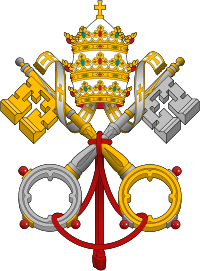
















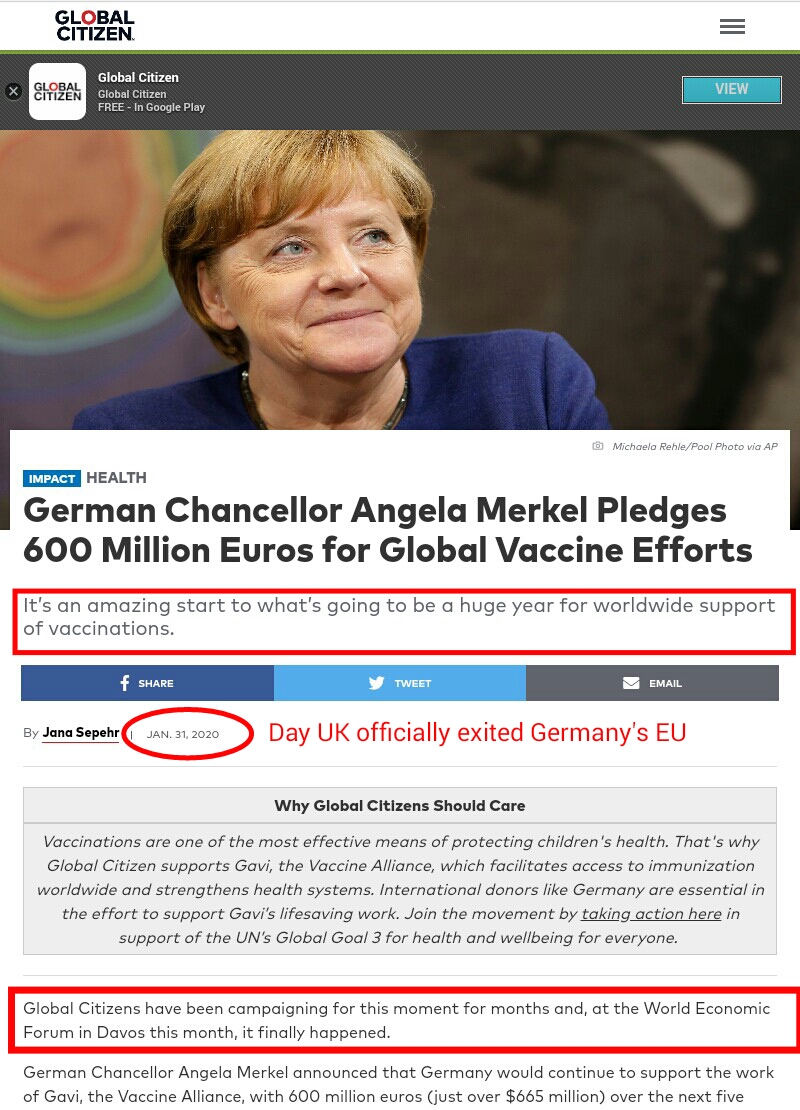





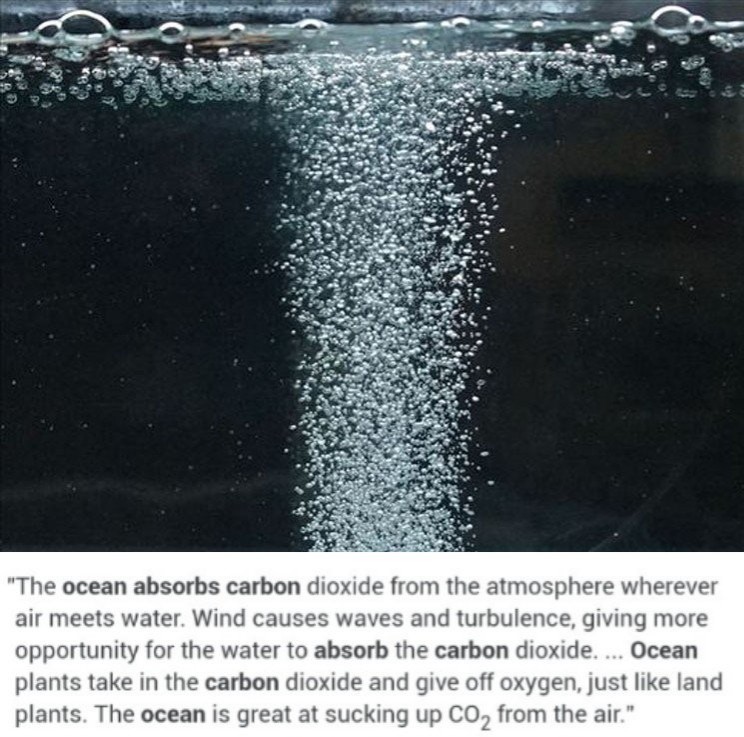
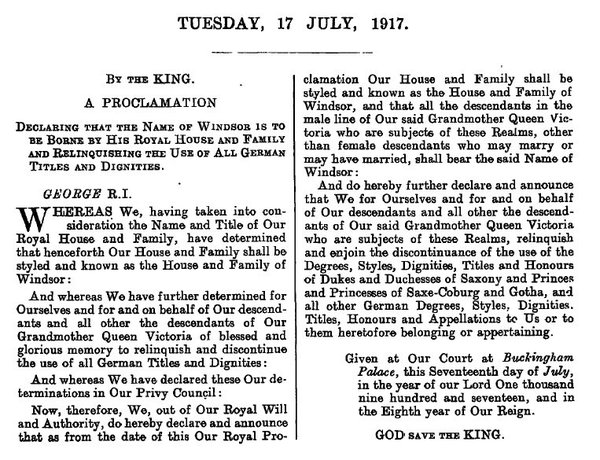




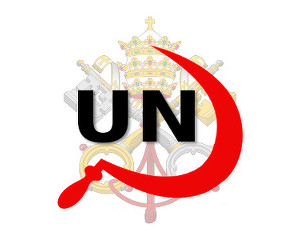
 1917 Code of Canon Law, Canon 185 invalidates (voids) all papacies since October 26, 1958 due to the fact Cardinal Giuseppe Siri was elected Pope on the Third ballot on Oct 26 1958 but the new Pope Gregory XVII was illegally prevented from assuming the office. A Pope was elected on October 26, 1958. Thousands of people witnessed a new Pope being elected by seeing white smoke and millions were informed by Vatican radio broadcasts beginning at 6:00 PM Rome time on October 26, 1958. The papacy of Francis, Benedict, John Paul II, John Paul I, Paul VI, John XXIII and any and all of their respective doctrines, bulls, letter patents and the Second Vatican Council are all invalidated (having no force, binding power, or validity) by Canon 185 because the 1958 conclave of cardinals elected Cardinal Giuseppe Siri Pope on Oct 26 1958. Cardinal Giuseppe Siri accepted the papacy by taking the name Pope Gregory XVII but was illegally prevented from assuming his elected office.. According to Canon 185 Cardinal Angelo Giuseppe Roncalli illegally assumed the papacy 2 days later by fraud and grave fear, unjustly inflicted against Cardinal Giuseppe Siri who was lawfully elected Pope Gregory XVII. Because no Pope has been lawfully elected since October 26, 1958 the Holy See (la Santa Sede/Seat) remains vacant.
1917 Code of Canon Law, Canon 185 invalidates (voids) all papacies since October 26, 1958 due to the fact Cardinal Giuseppe Siri was elected Pope on the Third ballot on Oct 26 1958 but the new Pope Gregory XVII was illegally prevented from assuming the office. A Pope was elected on October 26, 1958. Thousands of people witnessed a new Pope being elected by seeing white smoke and millions were informed by Vatican radio broadcasts beginning at 6:00 PM Rome time on October 26, 1958. The papacy of Francis, Benedict, John Paul II, John Paul I, Paul VI, John XXIII and any and all of their respective doctrines, bulls, letter patents and the Second Vatican Council are all invalidated (having no force, binding power, or validity) by Canon 185 because the 1958 conclave of cardinals elected Cardinal Giuseppe Siri Pope on Oct 26 1958. Cardinal Giuseppe Siri accepted the papacy by taking the name Pope Gregory XVII but was illegally prevented from assuming his elected office.. According to Canon 185 Cardinal Angelo Giuseppe Roncalli illegally assumed the papacy 2 days later by fraud and grave fear, unjustly inflicted against Cardinal Giuseppe Siri who was lawfully elected Pope Gregory XVII. Because no Pope has been lawfully elected since October 26, 1958 the Holy See (la Santa Sede/Seat) remains vacant.
 Hold the Crown (alias for temporal authority of the reigning Pope), the Crown appointed Governor General of Canada David Lloyd Johnston, the Crown's Prime Minister (servant) Stephen Joseph Harper, the Crown's Minister of Justice and Attorney General Peter Gordon MacKay and the Crown's traitorous military RCMP force, accountable for their crimes of treason and high treason against Canada and acts preparatory thereto. The indictment charges that they, on and thereafter the 22nd day of October in the year 2014, at Parliament in the City of Ottawa in the Region of Ontario did, use force and violence, via the staged false flag Exercise Determined Dragon 14, for the purpose of overthrowing and besieging the government of Canada contrary to Section 46 of the Criminal Code. In a society governed by the rule of law, the government and its officials and agents are subject to and held accountable under the law. Sign the online
Hold the Crown (alias for temporal authority of the reigning Pope), the Crown appointed Governor General of Canada David Lloyd Johnston, the Crown's Prime Minister (servant) Stephen Joseph Harper, the Crown's Minister of Justice and Attorney General Peter Gordon MacKay and the Crown's traitorous military RCMP force, accountable for their crimes of treason and high treason against Canada and acts preparatory thereto. The indictment charges that they, on and thereafter the 22nd day of October in the year 2014, at Parliament in the City of Ottawa in the Region of Ontario did, use force and violence, via the staged false flag Exercise Determined Dragon 14, for the purpose of overthrowing and besieging the government of Canada contrary to Section 46 of the Criminal Code. In a society governed by the rule of law, the government and its officials and agents are subject to and held accountable under the law. Sign the online  Two of the most obvious signs of a dictatorship in Canada is traitorous Stephen Harper flying around in a "military aircraft" and using Canadian Special Forces "military" personnel from JTF2 and personnel from the Crown's traitorous martial law "military" RCMP force as his personal bodyguards.
Two of the most obvious signs of a dictatorship in Canada is traitorous Stephen Harper flying around in a "military aircraft" and using Canadian Special Forces "military" personnel from JTF2 and personnel from the Crown's traitorous martial law "military" RCMP force as his personal bodyguards.

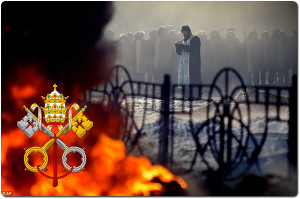
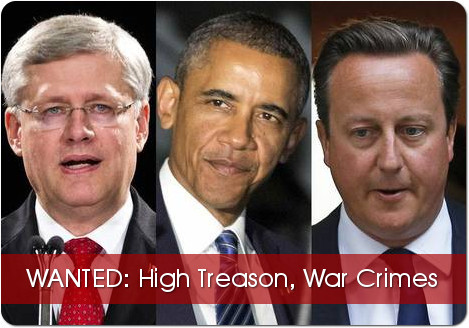

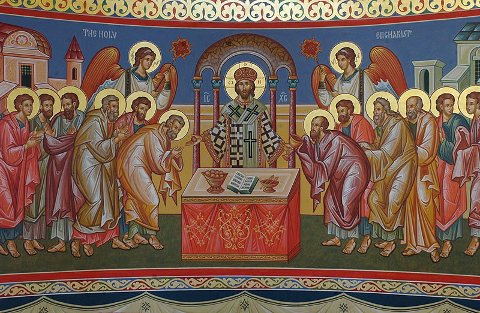

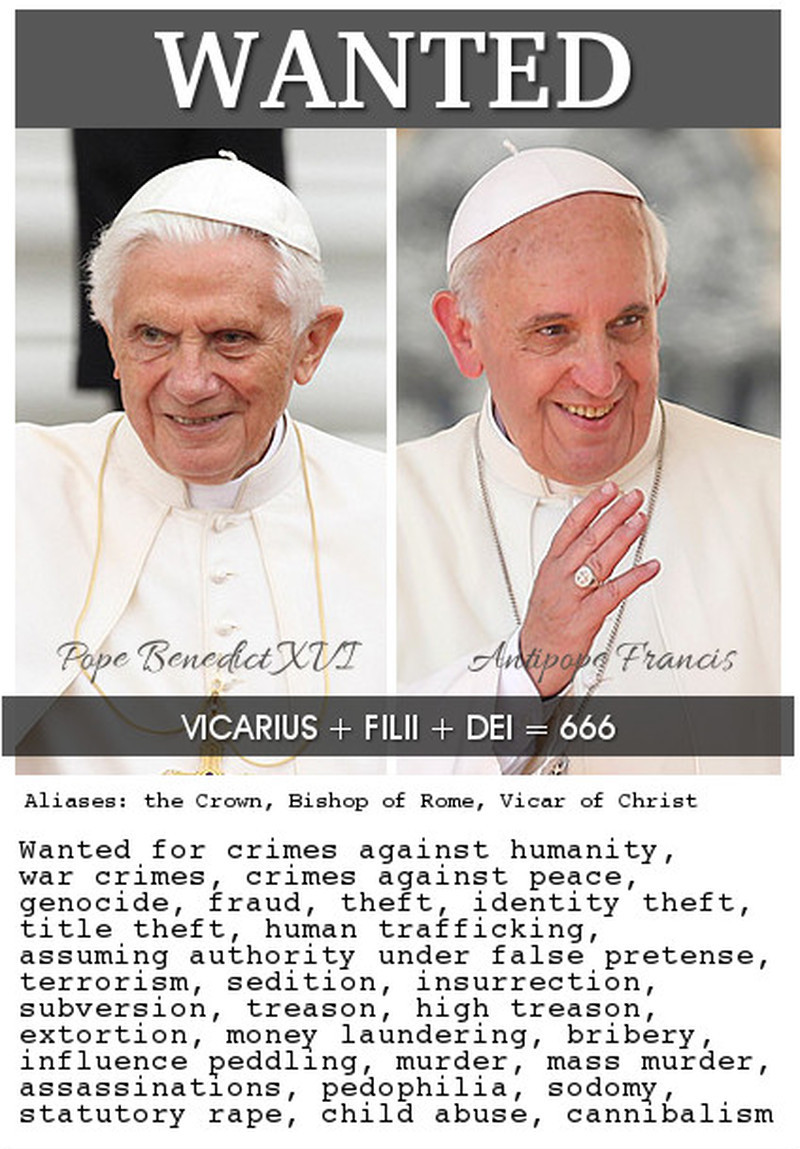

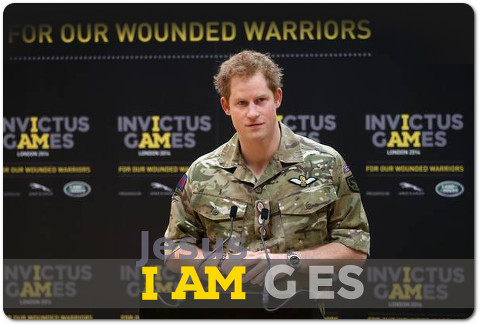









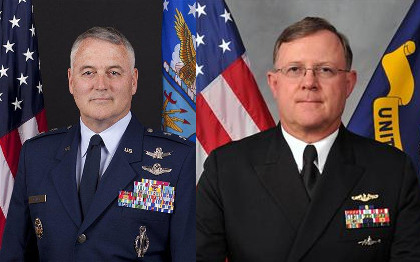



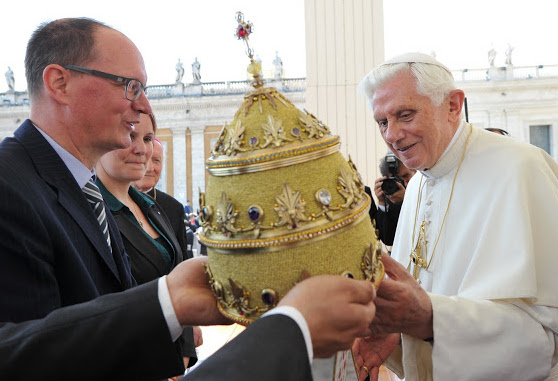


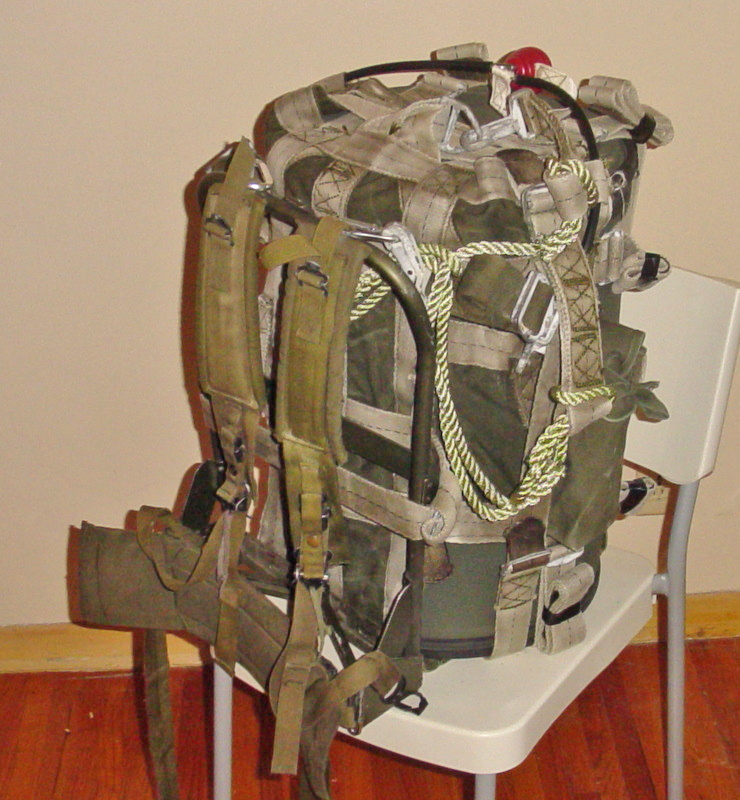
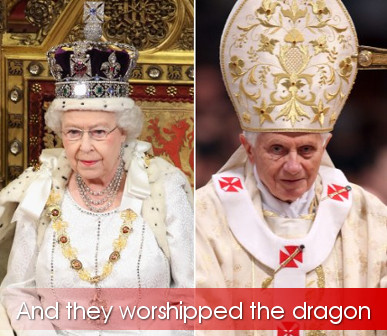







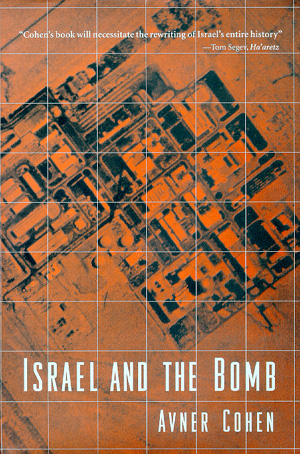


Even though there has been a new election, investigations of Stephen Harper and the Conservative Party for ballot box stuffing, ballot box theft, conflict of interest, misappropriation of public funding, imposition of martial law during the G8/G20 Toronto Summits, election fraud by Conservative Party members, in-and-out election campaign scheme, complicity in torture of Afghan POWs were not dismissed and can still proceed. A change in government doesn’t mean the end to the criminal investigations.
Just because Stephen Harper obstructed justice by shutting down the Parliamentary inquiry looking into charges of complicity in torture didn’t mean the RCMP investigation was shut down too. Harper isn’t Judge, Juror or Executioner he is the offender.
Auditor General Sheila Fraser was sacked by Harper because her investigation found evidence that Stephen Harper and members of his Party and government broke the law. AG Sheila Fraser’s report stated that Stephen Harper and Tony Clement may have broken the law during the G8/G20 Summits. The damning report was supposed to have been tabled in Parliament, but an election call shut Parliament down. The election was called because Stephen Harper broke Parliamentary Law. Harper was found guilty of Contempt of Parliament by a jury of his political peers. Contempt is the most serious charge ever committed by any Prime Minister of Canada or Prime Minister of any of the Commonwealth countries. As punishment for his crime Stephen Harper was fired as Prime Minister of Canada and an election was called. Harper could have gone to jail for contempt of Parliament but luckily for Harper that’s never happens in Canada. Not so lucky for the Canadian people as we now have a dictator in power.
How do you remove a dictator? File criminal charges against him. Inquires are useless as the dictator will always control the outcome or simply just shuts them down. File criminal charges against him with the RCMP. All it takes is for 2 witnesses to a crime to come forward and file charges. The RCMP will have to investigate. The RCMP is still the national police force of Canada. Stephen Harper is not above the law.
Stephen Harper authorized more than 700 bombing missions against Libya from the base in Trapani. What is significant about this? The bombing are all in violation of UN Resolution 1973 (2011). The UN Resolution only authorized a no-fly zone. Stephen Harper is a war criminal. Indiscriminate bombing of civilians and civilian infrastructure is a major war crime – punishable by death. Harper ordered Canadian airmen to drop bombs on Libya. Those bombs have killed thousands of civilians. The UN Resolution was authorized only to protect the civilian population. According to the wording of the Resolution Harper is guilty of crimes against humanity. The Resolution states the reason for the no-fly zone imposition – “Considering that the widespread and systematic attacks currently taking place in the Libyan Arab Jamahiriya against the civilian population may amount to crimes against humanity,” That is exactly what Canada, the U.S., the UK, France and NATO have been doing – “widespread and systematic attacks… against the civilian population.” The Resolution also stated – “Deploring the continuing use of mercenaries by the Libyan authorities,” yet again that is exactly who the Libyan rebels are – mercenaries sent by the U.S. and the U.K. The Resolution, “Acting under Chapter VII of the Charter of the United Nations,
1. Demands the immediate establishment of a ceasefire and a complete end to violence and all attacks against, and abuses of, civilians;
UN Charter Article 2, 7) “Nothing contained in the present Charter shall authorize the United Nations to intervene in matters which are essentially within the domestic jurisdiction of any state or shall require the Members to submit such matters to settlement under the present Charter; but this principle shall not prejudice the application of enforcement measures under Chapter Vll.”
The UN Resolution 1973 and the UN Charter Article 2 Section 7 unanimously declares Stephen Harper a war criminal. Harper is guilty of the crimes:
1) Crime against Peace,
2) War of aggression,
3) War crimes including “murder”, “the ill-treatment or deportation of civilian residents”, “the murder or ill-treatment of prisoners of war”, and “the mass wanton destruction of cities, towns and villages, not justified by military, or civilian necessity”., and
4) Crimes against Humanity – “Murder, extermination, enslavement, deportation, and other inhumane acts committed against any civilian population, before or during the war, or persecutions on political, racial or religious grounds in execution of or in connection with any crime within the jurisdiction of the Tribunal, whether or not in violation of the domestic law of the country where perpetrated”.
Canada Elections Act
PART 6
CANDIDATES
Qualifications
Ineligible candidates
65. The following persons are not eligible to be a candidate:
(a) a person who is not qualified as an elector on the date on which his or her nomination paper is filed;
(b) a person who is disentitled under paragraph 502(3)(a) while they are so disentitled;
(i) a person who was a candidate in a previous election and for whom a return, report, document or declaration has not been provided under subsection 451(1), if the time and any extension for providing it have expired.
Obstruction, etc., of electoral process
480. (1) Every person is guilty of an offence who, with the intention of delaying or obstructing the electoral process, contravenes this Act, otherwise than by committing an offence under subsection (2) or section 481 or 482 or contravening a provision referred to in any of sections 483 to 499.
Intimidation, etc.
482. Every person is guilty of an offence who
(a) by intimidation or duress, compels a person to vote or refrain from voting or to vote or refrain from voting for a particular candidate at an election; or
(b) by any pretence or contrivance, including by representing that the ballot or the manner of voting at an election is not secret, induces a person to vote or refrain from voting or to vote or refrain from voting for a particular candidate at an election.
This comment is dedicated to the truly honorable Jack Layton. Back in November 2009 NDP leader Jack Layton said Canada’s reputation as a champion of human rights has been hurt by the notion that prisoners handed over to Afghan authorities were tortured and that the Harper government might have tried to cover it up.
“I believe the pressure for a full public inquiry is going to grow.… We have to clear the air here. Get to the bottom of it and find out whether we are dealing with a coverup,” he told CBC News.
“We certainly have to take the appropriate actions to deal with Canada’s reputation, which right now is taking a tumble.”
On November 19, 2009 the NDPs under the leadership of Jack Layton called for a public inquiry to investigate allegations that Stephen Harper and members of his government were complicit in the torture of innocent prisoners of war in Afghanistan. The call for an inquiry follows testimony given by senior Canadian diplomat Richard Colvin to the House of Commons Afghanistan Committee.
“There are concerns that the government was complicit in torture, in violation of international law, while engaging in a massive cover-up that put our diplomats and soldiers on the ground at risk,” said New Democrat Foreign Affairs Critic Paul Dewar. “The only way to get to the bottom of Richard Colvin’s explosive revelations is a public inquiry.”
Colvin, who was stationed in Afghanistan in 2006, testified that torture was standard operating procedure and that it was likely all Afghan prisoners handed over by Canadian Forces were subjected to torture. Colvin filed multiple reports on prisoner treatment, sending them to more than 70 senior military and government officials. No government action was taken in response to the reports. Colvin also confirmed that he and others were told by senior Canadian government officials to stop putting their concerns in writing.
“From ordering officials to stop documenting information on detainee abuse to gagging witnesses, using delay tactics, and interfering with the Military Police Complaints Commission, this government continues to undermine the investigation into Afghan prisoner abuse,” said New Democrat Defence Critic Jack Harris. “The government has left no other recourse than a public inquiry.”
At the NDP’s 22nd Convention, held on September 10, 2006, in Quebec City, Layton received a 92% approval rating in a leadership vote. At the same convention, the NDP passed a motion calling for the return of Canadian Forces from Afghanistan. On September 24, 2006, he met with Afghan president Hamid Karzai to discuss the NDP position.
On June 3, 2008, Layton voted to implement a program which would “allow conscientious objectors…to a war not sanctioned by the United Nations…to…remain in Canada…”
In October 2008, Layton posted an online video message speaking out in favour of net neutrality, torrent sites, video-sharing sites, and social-networking sites. In a separate interview he said that increasing corporate control “is very, very dangerous and we have put the whole issue of net neutrality right into the heart of our campaign platform,” and that the Internet is “a public tool for exchanging ideas and I particularly want to say that if we don’t fight to preserve it, we could lose it.”
On December 1, 2008, the three opposition leaders signed an accord that laid down the basis for an agreement on a coalition government. The proposed structure would be a coalition between the Liberals and the NDP, with the New Democrats getting six Cabinet positions. Both parties agreed to continue the coalition until June 30, 2011.
Three days later on December 4, 2008 Stephen Harper suspended parliament until January 26, 2009, at which time Harper had planned to introduce the budget. Dion was ousted from the leadership of the Liberals and his successor, Michael Ignatieff, had distanced himself from the coalition.
Layton remained committed to ousting the Harper government, pledging that the NDP would vote against the Conservative budget regardless of what it contained. Layton urged Ignatieff’s Liberal Party to topple to Conservatives before the shelf life of the coalition expired; constitutional experts said that four months after the last election, if the government fell, the Governor General would likely grant the Prime Minister’s request to dissolve parliament instead of inviting the coalition.
On January 28, 2009, the Liberals agreed to support the Conservative budget with an amendment, ending the possibility of the coalition, so Layton said “Today we have learned that you can’t trust Mr. Ignatieff to oppose Mr. Harper. If you oppose Mr. Harper and you want a new government, I urge you to support the NDP.” In late 2009, Layton was diagnosed with prostate cancer.
The Conservative government was defeated in a no-confidence vote on March 25, 2011, with the motion gaining full support of all opposition parties including the New Democrats, after the government was found in contempt of parliament. This was the first occurrence in Canadian history and Commonwealth history of a government in the Westminster parliamentary tradition losing the confidence of the House of Commons on the grounds of contempt of parliament. The no-confidence motion was carried with a vote of 156 in favour of the motion, and 145 against, thus disentitling Stephen Harper as Prime Minister of Canada. This Elections Canada Act disentitlement forced a dissolution of parliament and a federal election.
Signs of a dictatorship:
Stephen Harper appointed a civilian to head the RCMP in 2007. Why? So that the appointee can spy on the RCMP for Stephen Harper and obstruct any RCMP investigations of Stephen Harper. Investigations into ballot box stuffing, ballot box theft, conflict of interest, misappropriation of public funding, imposition of martial law during the G8/G20 Toronto Summits, election fraud by Conservative Party members, in-and-out election campaign scheme, complicity in torture of Afghan POWs …
Two of the most public signs of a dictatorship is Stephen Harper flying around in a military aircraft and is using Canadian Special Forces personnel from JTF2 as personal bodyguards instead of the RCMP.
Does Stephen Harper have a majority government? As far as democracy is concerned Stephen Harper doesn’t have a majority. Stephen Harper did not receive a majority vote in the 2011 Federal Election. Harper only received 39.6% of the votes cast. A clear minority in a truly democratic election. 60.4% of Canadians voted against Harper. A clear majority was and is still opposed to Stephen Harper’s leadership. Add the fact that more than one-quarter of the 7.5 million eligible voters did not cast a ballot in the May 2, 2011 federal election.